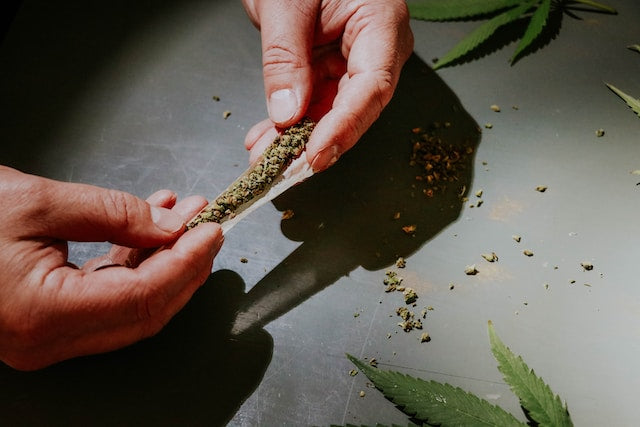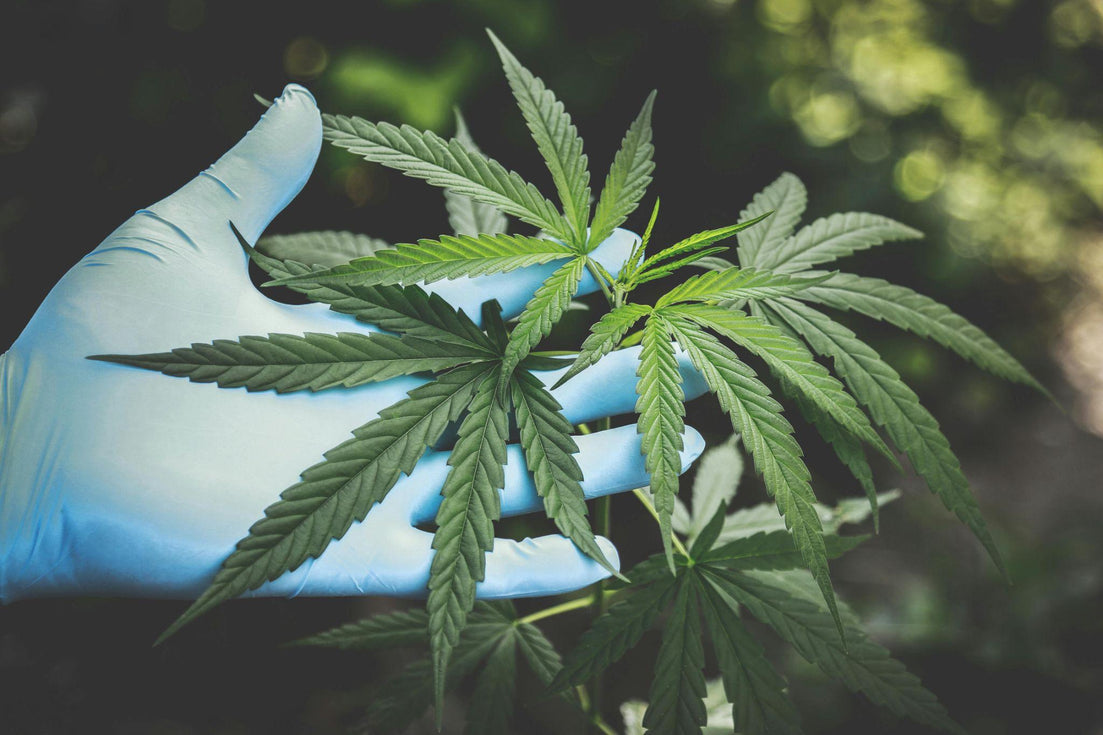Your cart is currently empty.

In recent years, the popularity of natural wellness solutions has skyrocketed, with many individuals seeking alternative approaches to improve their overall health and well-being. As a result, the use of CBD products has become increasingly widespread, often sparking spirited debates on the best consumption methods.
While CBD can be consumed in various ways, such as through oils, edibles, or vapes, some people opt to mix it with tobacco when smoking. This practice raises questions about the impact of combining these substances and whether it's beneficial or detrimental to one's health.
In this article, we delve into the heart of this debate by discussing the potential pros and cons of consuming CBD with or without tobacco. Below, we examine the effects of both methods on the body and provide valuable tips to help you make an informed decision about your preferred method of consumption. Read on to learn more about this intriguing topic.
Understanding CBD and Its Effects on the Body
Cannabidiol (CBD) is a non-intoxicating compound derived from the cannabis plant, which has gained significant attention for its potential therapeutic effects. Although more research still needs to be done, there's enough anecdotal evidence to suggest that CBD may help encourage a healthy inflammatory response, support relaxation, and promote a good night's sleep.
Unlike THC, another well-known cannabinoid, CBD does not produce a "high" or any intoxicating effects.
So how does CBD work? The human body contains an endocannabinoid system (ECS), which plays a crucial role in regulating various physiological processes. CBD can interact with the ECS by influencing its receptors, helping to maintain balance within the body and promote overall wellness.
Since CBD is legal in most states, you should have trouble ordering it online or getting it at the physical locations with the help of dispensary deals in Las Vegas or other places.
Effects of Tobacco
Tobacco has been used for centuries as a stimulant and a means of social interaction. Today, it's widely recognized that tobacco consumption poses significant health risks due to its high levels of toxic and carcinogenic substances.
Despite public awareness campaigns and increased restrictions on tobacco marketing, smoking remains a prevalent habit for many people worldwide.
While nicotine, the primary addictive substance in tobacco, can provide temporary stress relief and increased alertness, the accompanying harmful compounds can lead to chronic diseases like heart disease, stroke, and various cancers.
Exploring CBD Consumption Methods
CBD can be consumed in several ways, each offering unique benefits and drawbacks. Some popular methods include:
- Tinctures: CBD oil drops added to food and drinks or placed directly in the mouth for fast absorption.
- Edibles: Infused food or beverages that provide slow-release effects.
- Topicals: Creams or balms applied directly to the skin for targeted relief.
- Vaping: Inhaled vapor providing rapid effects without combustion byproducts.
Despite the potential adverse effects, mixing CBD with tobacco remains a popular way to consume both substances simultaneously. This method typically involves rolling a joint or using a pipe with a blend of ground CBD-rich hemp flower and tobacco.
While this combination might provide synergistic effects, it also exposes users to the harmful compounds found in tobacco smoke.
Combining CBD and Tobacco
When CBD is consumed with tobacco, the potential health benefits of CBD may become overshadowed by the adverse effects of tobacco smoke. Smoking any substance, including CBD, can result in lung irritation and respiratory issues due to the presence of carcinogenic substances.
Nicotine's addictive properties could also lead to increased tobacco consumption when mixed with CBD, potentially negating any therapeutic advantages offered by the compound.
Furthermore, CBD, unlike nicotine present in tobacco, is not addictive. It means that even if you use the substance on a daily basis, you can stop consuming it overnight and shouldn't experience adverse effects or withdrawal symptoms. Unfortunately, this is not the case with nicotine.
That's why even though it's certainly possible to mix CBD and tobacco and consume them both at the same time, it's better to avoid such practices.
The Synergistic Effects: Do They Enhance or Hinder?
While there is limited scientific research on the effects of combining CBD and tobacco, anecdotal evidence suggests that some users believe the mixture enhances relaxation and provides a smoother smoking experience. However, others argue that this practice diminishes the potential benefits of CBD by introducing harmful toxins into the body.
The truth likely lies somewhere in between, and individual preferences might play a significant role in determining whether this combination is beneficial or detrimental for each user.
Ultimately, deciding whether to consume CBD with or without tobacco comes down to personal preference and individual health goals. It's essential to consider various factors before making a choice, including your current state of health, any pre-existing medical conditions, and your reasons for using CBD in the first place.
If you're primarily interested in experiencing the potential health benefits of CBD without exposing yourself to the risks associated with smoking tobacco, opting for CBD only would be advisable.
In Conclusion
As the popularity of CBD products continues to grow, it's crucial for consumers to make informed decisions about their consumption methods. Combining CBD with tobacco may offer a unique experience for some, but it's important to weigh the potential risks and benefits before engaging in this practice.
For those looking to optimize the potential therapeutic effects of CBD without exposing themselves to the harmful substances found in tobacco, alternative consumption methods like tinctures, edibles, topicals, or vaping may be more suitable. These methods allow users to experience the benefits of CBD without the potential risks associated with smoking.
In contrast, if you're a tobacco user who's interested in trying CBD, you may want to consider reducing or eliminating your tobacco intake to minimize potential health risks. Gradually incorporating CBD into your routine may help alleviate withdrawal symptoms and make the transition easier.
Regardless of your chosen method, it's essential to consult with a healthcare professional before incorporating CBD into your wellness routine, especially if you have any pre-existing health conditions or are taking prescription medications. By staying informed and considering your individual needs and goals, you can make the best decision for your overall health and well-being.



